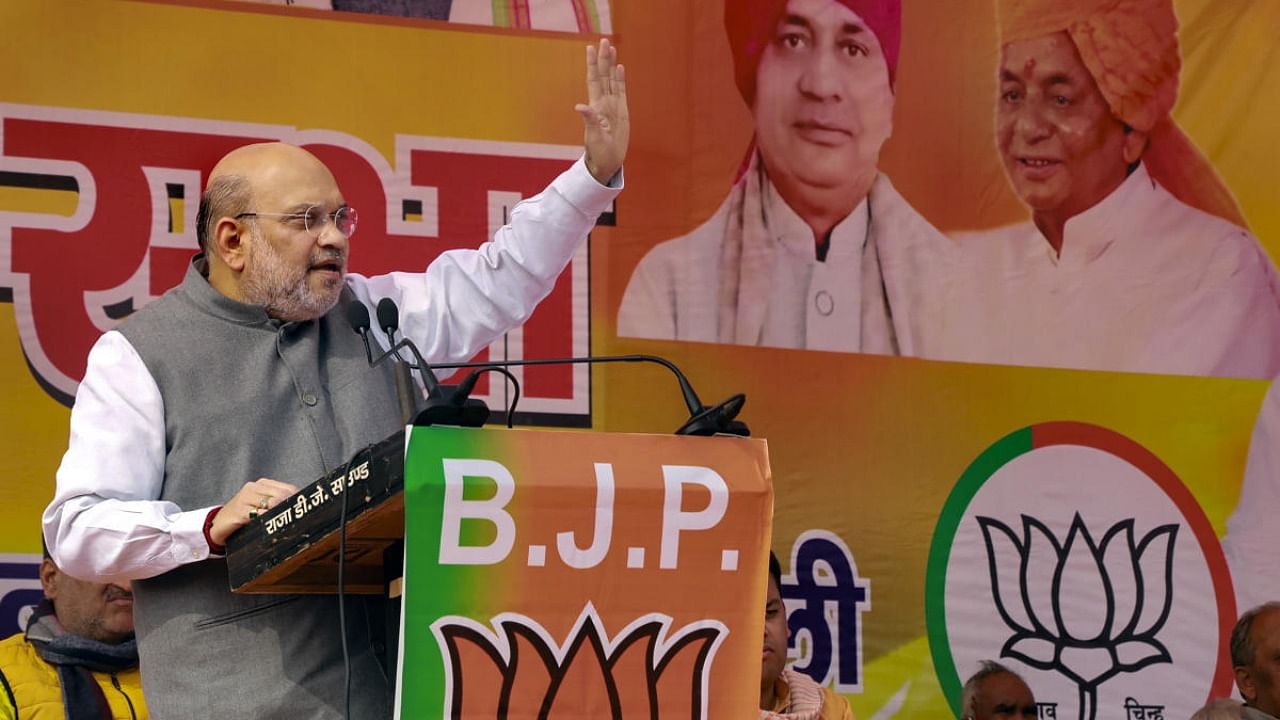
Western Uttar Pradesh, which goes to the polls in the first phase of the Assembly elections in the state, has been plunged into a poll campaign marked by the most undesirable forms of communal and casteist rhetoric and mobilisation. This region of the state has much significance in this round of elections because of the churn that seems to have happened after 2017. The Jats, who are the dominant community in many constituencies, had supported the BJP in the last elections. But the community has been estranged from the party after the year-long farmers’ protest. The alliance between the Samajwadi Party (SP) and the Jat-dominated Rashtriya Lok Dal (RLD) has emerged as a strong challenger to the BJP. The BJP had won 52 out of the 71 seats in the region in 2017. The SP had won 16. If the Jat votes shift to the SP-RLD alliance, the BJP is bound to suffer losses.
That possibility has led the BJP to unleash a blatantly communal and casteist campaign in the region. Union Home Minister Amit Shah has led the charge, and he has made some most unseemly and inappropriate statements, unworthy of his position. He made the astounding statement that the “ideology of both the BJP and Jats is the same as both have fought the Mughal invaders’’. Was the BJP in existence in the 16th and 17th centuries to fight the Mughals? Or was the Home Minister of the country using “Mughals” to mean today’s Muslim citizens? He also made references to the 2013 communal riots in Muzaffarnagar in a way that seemed to hold out a threat that if the BJP was not voted into power, there would be a repeat of those riots. Prime Minister Modi used his virtual rally on Monday to remind the people of the riots. The BJP leaders are trying to woo the Jats back with promises, warnings and references to the riots and the most ridiculous claims.
The Home Minister, who has the responsibility to maintain peace and amity between communities and to take action against those who disrupt the peace, is himself trying to create dissensions between sections of people. They raise moral and political issues that make his continuance in the government untenable. Chief Minister Yogi Adityanath and several Union and state ministers have also made the most divisive statements and tried to create hostilities between communities. It is unfortunate that the Election Commission of India has not found any of the statements worthy of action. Appeals to religious and caste sentiments violate the model code of conduct and should attract firm action from the commission. Successive elections have seen a progressive deterioration in the standards of campaigning. Unfortunately, they have seen a deterioration in the functioning of the Election Commission, too.